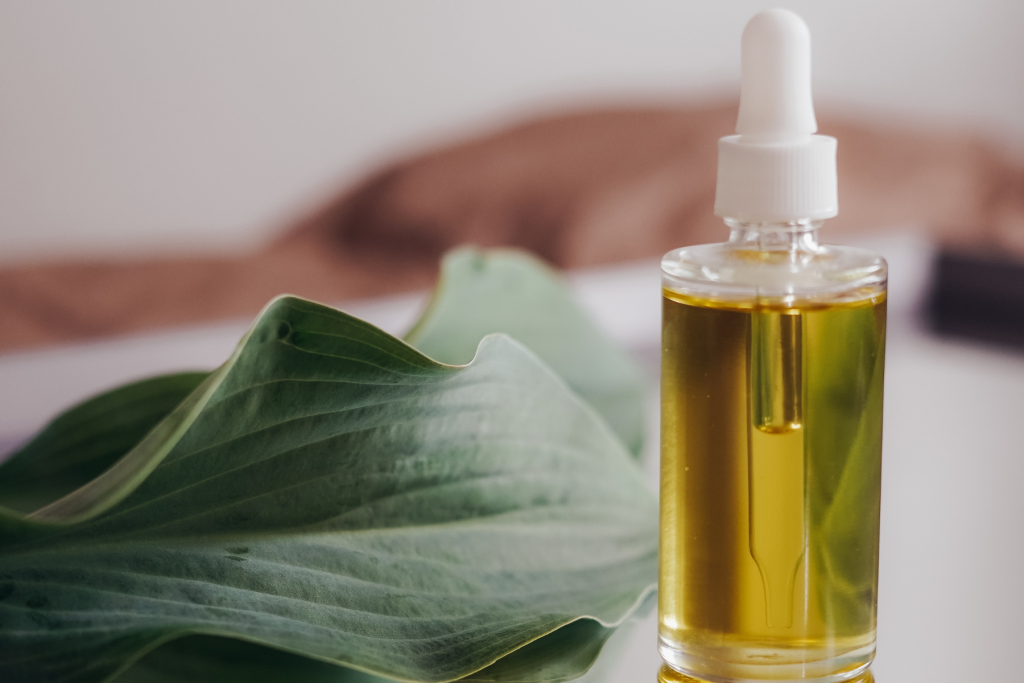Discover the secrets to selecting the perfect facial oil for your unique skin type.
How to Choose the Right Facial Oil for Your Skin Type

Have you been wondering how to achieve that healthy, glowing skin you’ve always dreamed of? Look no further! Facial oils are the secret weapon you need to add to your skincare routine. But with so many options available, how do you choose the right facial oil for your skin type? Don’t worry, we’ve got you covered. In this article, we’ll take a deep dive into the world of facial oils and guide you through the process of finding the perfect one for your skin.
Understanding the Importance of Facial Oils
Before we dive into the nitty-gritty details, let’s talk about why facial oils are essential for your skincare routine. Facial oils have gained immense popularity in recent years, and for a good reason. They provide intense hydration, help nourish your skin, and even offer additional benefits like reducing fine lines and promoting a youthful complexion.
When it comes to skincare, hydration is key. Our skin needs moisture to stay healthy and maintain its natural balance. However, factors like harsh weather conditions, pollution, and even certain skincare products can strip away the skin’s natural moisture, leaving it dry, dull, and prone to various issues.
This is where facial oils come to the rescue. These luxurious elixirs are packed with nourishing ingredients that can deeply hydrate your skin and restore its vitality. They work by creating a protective barrier on the skin’s surface, sealing in moisture and preventing water loss. This barrier not only helps to keep your skin hydrated but also strengthens its natural moisture barrier, keeping it plump and supple.
The Role of Facial Oils in Skincare
Facial oils act as a protective barrier for your skin, sealing in moisture and preventing water loss. They help strengthen your skin’s natural moisture barrier, keeping it plump and supple. Additionally, facial oils can also regulate sebum production, making them suitable for both dry and oily skin types.
Sebum, the natural oil produced by our skin, plays a crucial role in maintaining its health. However, an imbalance in sebum production can lead to various skin issues. Those with dry skin often lack sufficient sebum, resulting in a compromised moisture barrier. On the other hand, individuals with oily skin may have an overproduction of sebum, leading to greasy and acne-prone skin.
Facial oils can help restore balance by regulating sebum production. For those with dry skin, facial oils provide the much-needed hydration that their skin craves. By nourishing the skin with essential fatty acids and vitamins, facial oils can replenish moisture and improve the skin’s overall texture and appearance.
Contrary to popular belief, facial oils can also benefit individuals with oily skin. When the skin is dehydrated, it often compensates by producing more sebum, leading to an oilier complexion. By using facial oils, you can provide your skin with the hydration it needs, signaling to your sebaceous glands that there’s no need for excessive sebum production. This, in turn, can help regulate oiliness and promote a more balanced complexion.
Benefits of Using Facial Oils
Aside from providing hydration, facial oils offer a multitude of benefits that can improve the overall health of your skin. They contain essential fatty acids, antioxidants, and vitamins that help nourish your skin and protect it from environmental stressors. Facial oils also possess anti-inflammatory properties, making them an excellent choice for soothing sensitive or irritated skin.
Essential fatty acids, such as omega-3 and omega-6, are crucial for maintaining healthy skin. They help strengthen the skin’s barrier function, improve elasticity, and promote a youthful complexion. Antioxidants, on the other hand, protect the skin from free radicals, which can cause premature aging and damage. By incorporating facial oils into your skincare routine, you can provide your skin with these essential nutrients, helping it stay healthy and radiant.
In addition to their nourishing properties, facial oils also possess anti-inflammatory benefits. They can help calm redness, soothe irritation, and reduce the appearance of blemishes. This makes facial oils an excellent choice for those with sensitive or acne-prone skin. By using facial oils regularly, you can promote a calmer, more balanced complexion.
It’s important to note that not all facial oils are created equal. Different oils have different properties and are suitable for various skin types. Some popular facial oils include jojoba oil, rosehip oil, argan oil, and marula oil. Each of these oils has its unique benefits and can address specific skincare concerns. It’s essential to choose a facial oil that is compatible with your skin type and addresses your specific needs.
Identifying Your Skin Type
Before you can choose the perfect facial oil for your skin, it’s essential to identify your skin type. Knowing whether you have dry, oily, combination, or sensitive skin will help you select the most suitable product that will address your specific needs.
Characteristics of Different Skin Types
Let’s briefly go over the characteristics of each skin type to help you determine which category you fall into:
- Dry Skin: Dry skin often feels tight, rough, and may appear flaky or dull. It is prone to fine lines and can feel uncomfortable throughout the day.
- Oily Skin: Oily skin is characterized by excess sebum production, leading to a shiny complexion and frequent breakouts. It may appear congested, especially in the T-zone (forehead, nose, and chin).
- Combination Skin: Combination skin is a mix of both dry and oily. Typically, the T-zone is oilier, while the cheeks and other areas may be dry or normal.
- Sensitive Skin: Sensitive skin is easily irritated and can react to various factors like certain ingredients, weather changes, or even stress. It may appear red, itchy, and uncomfortable.
How to Determine Your Skin Type
To determine your skin type, start by observing how your skin feels and looks throughout the day. Pay attention to areas where you experience the most shine or dryness. Keep in mind that your skin type can change with time, so it’s essential to regularly assess your skin to ensure you’re using the right products.
When it comes to dry skin, it’s important to note that this skin type lacks moisture and can often feel tight and uncomfortable. Dry skin is more prone to fine lines and wrinkles, as well as flakiness and dullness. To combat these issues, it’s crucial to choose a facial oil that is deeply hydrating and nourishing. Look for ingredients like jojoba oil, argan oil, and rosehip oil, which are known for their moisturizing properties.
Oily skin, on the other hand, is characterized by excessive sebum production. This can lead to a shiny complexion and frequent breakouts. If you have oily skin, it’s important to choose a facial oil that is lightweight and non-comedogenic, meaning it won’t clog your pores. Look for ingredients like tea tree oil, grapeseed oil, and hazelnut oil, which are known for their balancing and clarifying properties.
Combination skin can be a bit tricky to manage since it has both dry and oily areas. The T-zone, which includes the forehead, nose, and chin, tends to be oilier, while the cheeks and other areas may be dry or normal. To address this skin type, it’s important to choose a facial oil that can balance the skin’s moisture levels without causing excessive oiliness. Look for ingredients like jojoba oil, squalane, and evening primrose oil, which can help regulate sebum production and provide hydration where needed.
Sensitive skin requires extra care and attention. It is easily irritated and can react to various factors like certain ingredients, weather changes, or even stress. If you have sensitive skin, it’s important to choose a facial oil that is gentle and soothing. Look for ingredients like chamomile oil, calendula oil, and lavender oil, which are known for their calming and anti-inflammatory properties. Avoid harsh ingredients like fragrances and alcohol, as they can further irritate the skin.
Remember, determining your skin type is the first step in finding the perfect facial oil for your skincare routine. By understanding your skin’s unique needs, you can choose a product that will help nourish, hydrate, and balance your complexion, giving you a healthy and radiant glow.
Facial Oils for Different Skin Types
Now that you have a clear understanding of your skin type, let’s explore the best facial oils for each category:
Best Facial Oils for Dry Skin
If you have dry skin, you’ll need a facial oil that provides intense hydration and helps restore moisture balance. Look for oils rich in nourishing ingredients like argan oil, rosehip oil, and jojoba oil. These oils are packed with vitamins and fatty acids that will leave your skin feeling soothed and revitalized.
Recommended Facial Oils for Oily Skin
Contrary to popular belief, even oily skin can benefit from facial oils. Opt for lightweight oils like grapeseed oil, tea tree oil, or squalane oil. These oils have a non-greasy texture and can help regulate sebum production, keeping your skin hydrated without clogging your pores.
Ideal Facial Oils for Combination Skin
Combination skin requires a careful balance of moisturization. Consider using facial oils that have a lighter consistency, such as rosemary oil, marula oil, or evening primrose oil. These oils will provide hydration to dry areas while keeping excess shine at bay.
Suitable Facial Oils for Sensitive Skin
When it comes to sensitive skin, it’s crucial to choose gentle and calming facial oils. Look for oils like chamomile oil, calendula oil, or hemp seed oil. These oils have anti-inflammatory properties that can help soothe and nourish reactive skin without causing further irritation.
How to Apply Facial Oil Correctly
You’ve found the perfect facial oil for your skin type, but how do you apply it correctly to maximize its benefits? Follow our step-by-step guide below:
Step-by-Step Guide to Applying Facial Oil
- Cleanse your face thoroughly and pat it dry with a clean towel.
- Take a few drops of your chosen facial oil and warm it up between your palms.
- Gently press the oil into your skin using upward motions, starting from the center of your face and working your way out.
- Allow the oil to fully absorb into your skin before applying any other products.
- Remember, a little goes a long way, so start with a small amount and adjust as needed.
Common Mistakes to Avoid When Applying Facial Oil
While facial oil can work wonders for your skin, there are a few common mistakes you should avoid making:
- Using too much: Overloading your skin with oil may lead to a greasy or heavy feeling. Remember that a little goes a long way.
- Applying on damp skin: Facial oils are best applied to dry skin to ensure optimal absorption.
- Skip moisturizer: Facial oils are not meant to replace your moisturizer. Use them in conjunction with your regular moisturizer for maximum hydration.
Frequently Asked Questions About Facial Oils

Can Facial Oils Cause Breakouts?
When using the appropriate facial oil for your skin type, the chances of experiencing breakouts are significantly reduced. However, it’s crucial to choose non-comedogenic oils that won’t clog your pores. If you’re prone to breakouts, opt for lightweight oils that won’t weigh your skin down.
Should You Use Facial Oil Before or After Moisturizer?
The general rule of thumb is to apply facial oil after moisturizer. This allows the moisturizer to create a protective barrier, while the facial oil locks in the hydration and provides additional nourishment. However, feel free to experiment and see what works best for your skin.
Now that you have all the essential information, it’s time to choose the right facial oil for your skin type and start incorporating it into your daily routine. Get ready to say hello to a radiant and healthy complexion! Remember, finding the perfect facial oil may take some trial and error, but when you find the one that works, your skin will thank you.





